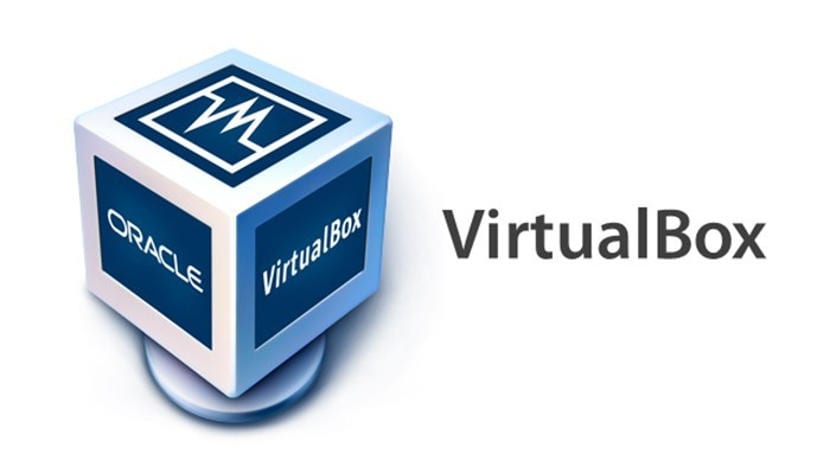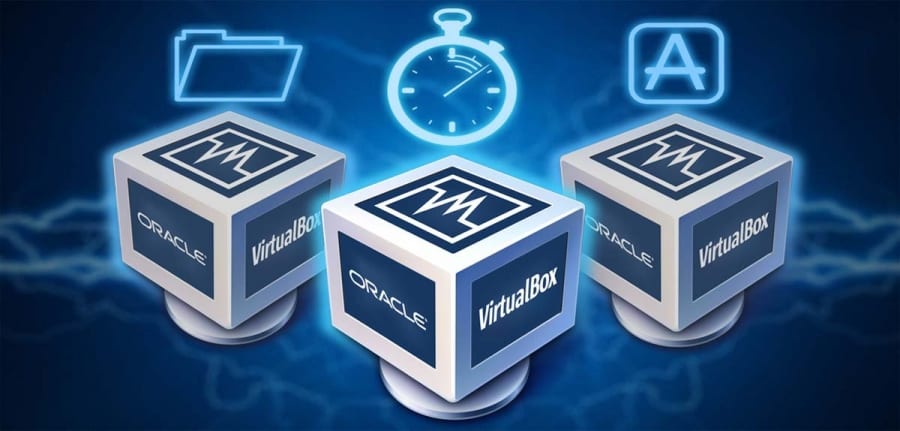
VirtualBox is an excellent multiplatform virtualization tool, that gives us the possibility of creating virtual disk drives where we can install an operating system within the one we normally use.
VirtualBox allows us to run virtual machines remotely, via Remote Desktop Protocol (RDP), iSCSI support. Another function it presents is to mount ISO images as virtual CD or DVD drives, or as a floppy disk.
VirtualBox is a free virtualization solution from Oracle. VirtualBox can virtualize Windows XP, Windows Vista, Windows 7, Windows 10, Ubuntu, Debian, CentOS and many other versions of Linux, Solaris, some variants of BSD, etc.
Recently, VirtualBox 6.0.8 came out, a corrective update that solves some problems in the current VirtualBox 6.0 branch.
Main changes in VirtualBox 6.0.8
VirtualBox 6.0.8 is a small update, but trat out some major issues to improve your VirtualBox experience.
To begin with, fix saved state continuation faultsas well as mouse click pass issues that users experienced on multi-web virtual machines and an error that occurred when shutting down a virtual machine without the graphics driver.
Another of the changes that stand out in this correction version is that tIt also adds some important improvements for Linux platforms.
Of which we found support for shared folders on Linux 3.16.35 LTS kernel systems to properly handle "read-only" mode on shared folders.
VirtualBox 6.0.8 improves the user interface, showing the full location of the file in the New Medium window.
For Windows guests, VirtualBox will now notice file size increases for files within shared folders and for Windows hosts, the new update adds support for file paths in shared folders with more than 4096 characters.
In addition, VirtualBox 6.0.8 partially fixes a problem which caused virtual machine configurations to conflict with other virtual machines related to media UUIDs.
Thus, VirtualBox now correctly flags virtual machines as inaccessible when a conflict is detected.

How to install VirtualBox 6.0.8?
If you are interested in being able to install this new version of VirtualBox on your systems, you can do so by following the instructions that we share below.
The VirtualBox developers offer us already built packages for easy installation on our distro.
In the case of those Distributions based on Debian 9,10, Ubuntu 19.04, 18.10, 18.04 and others with support for .deb packages. We are going to download the .deb package for this version of VirtualBox 6.0.8.
For this we are going to open a terminal and in it we type:
wget https://download.virtualbox.org/virtualbox/6.0.8/virtualbox-6.0_6.0.8-130520~Ubuntu~bionic_amd64.deb
For Ubuntu 16.04 LTS and derivatives:
wget https://download.virtualbox.org/virtualbox/6.0.8/virtualbox-6.0_6.0.8-130520~Ubuntu~xenial_amd64.deb
Done the download its installation can be done with your preferred package manager or from the terminal with:
sudo dpkg -i virtualbox-6.0_6.0.8*.deb
And in case of having problems with the dependencies we solve them with:
sudo apt -f install
Now in the case of wanting to continue receiving updates, we can add the application repository to our system. We do this by executing in the terminal:
echo "deb https://download.virtualbox.org/virtualbox/debian $(lsb_release -cs) contrib" | sudo tee /etc/apt/sources.list.d/virtualbox.list
Done this now We must add the public PGP key from the official VirtualBox packages repository to the system.
Otherwise, we will not be able to use the official VirtualBox package repository. To add the public PGP key from the official VirtualBox package repository, run the following command:
wget -q https://www.virtualbox.org/download/oracle_vbox_2016.asc -O- | sudo apt-key add -
sudo apt-get update
While for those who are Fedora, RHEL, CentOS users, we must do the following, which is to download the package with:
wget https://download.virtualbox.org/virtualbox/6.0.8/VirtualBox-6.0-6.0.8_130520_fedora29-1.x86_64.rpm wget https://www.virtualbox.org/download/oracle_vbox.asc
In the case of The OpenSUSE 15 package for your system is this:
wget https://download.virtualbox.org/virtualbox/6.0.8/VirtualBox-6.0-6.0.8_130520_openSUSE150-1.x86_64.rpm
After that we type:
sudo rpm --import oracle_vbox.asc
And we install with:
sudo rpm -i VirtualBox-6.0-*.rpm
Now to verify that the installation was done:
VBoxManage -v
In the case of Arch Linux, you can install from AUR, even though some services are required for Systemd, so it is recommended that you use the Wiki in order to install.
sudo pacman -S virtualbox
As an additional step we can improve the functioning of VirtualBox With the help of a package, this package enables VRDP (Virtual Remote Desktop Protocol), solves the problem with the small resolution that VirtualBox runs, and many other improvements.
To install it, run the following commands:
curl https://download.virtualbox.org/virtualbox/6.0.8/Oracle_VM_VirtualBox_Extension_Pack-6.0.8-130520.vbox-extpack sudo VBoxManage extpack install Oracle_VM_VirtualBox_Extension_Pack-6.0.8-130520.vbox-extpack
We accept the terms and conditions and install the package.
To verify that it was installed correctly:
VBoxManage list extpacks